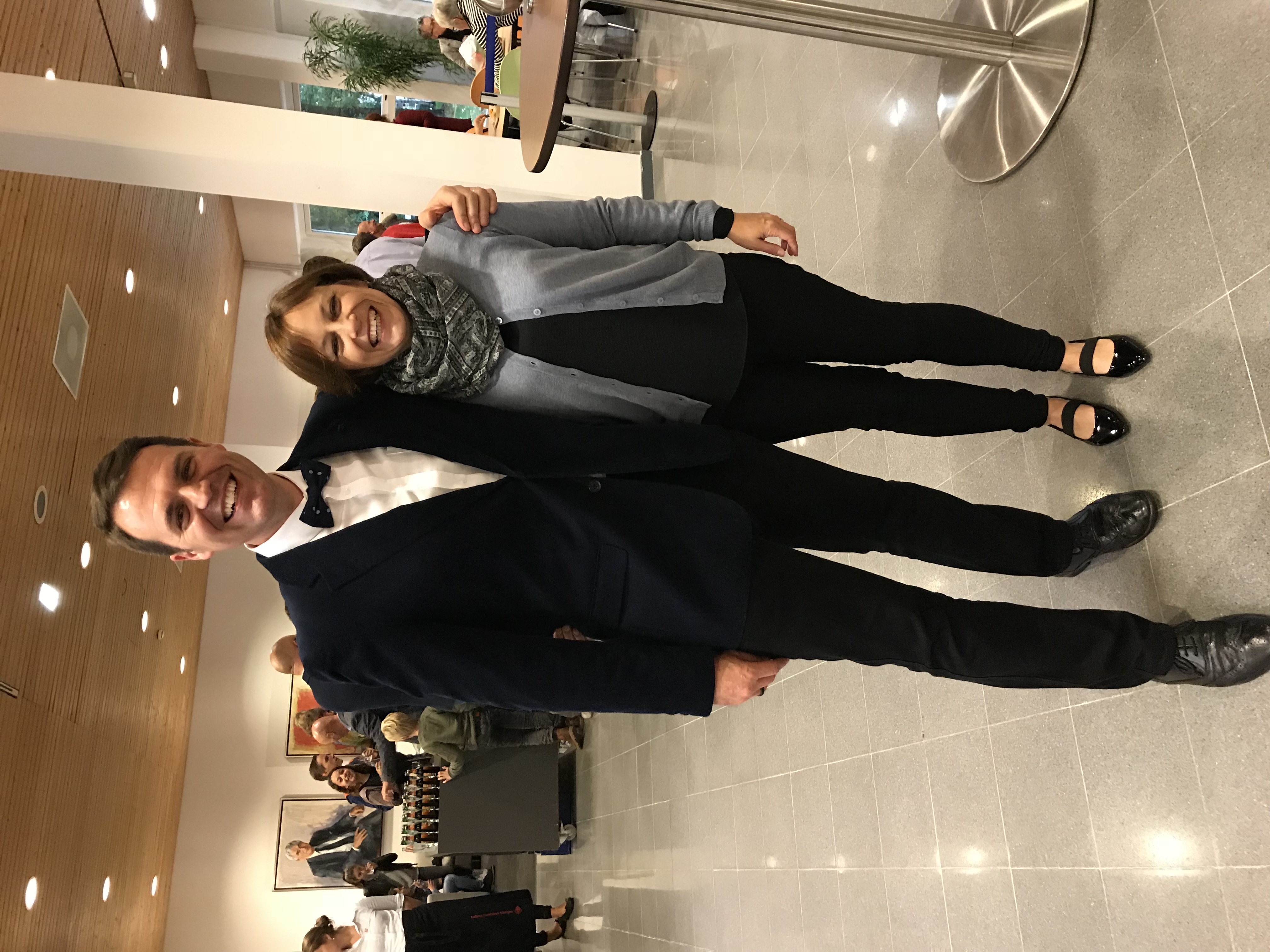Some big changes coming! Vrije Universiteit Amsterdam
 Wednesday, October 18, 2023 at 4:53PM
Wednesday, October 18, 2023 at 4:53PM There are some big changes coming! Please see the short video below for more details. We would appreciate your prayers.
 Wednesday, October 18, 2023 at 4:53PM
Wednesday, October 18, 2023 at 4:53PM There are some big changes coming! Please see the short video below for more details. We would appreciate your prayers.
 Tuesday, September 13, 2022 at 9:56AM
Tuesday, September 13, 2022 at 9:56AM 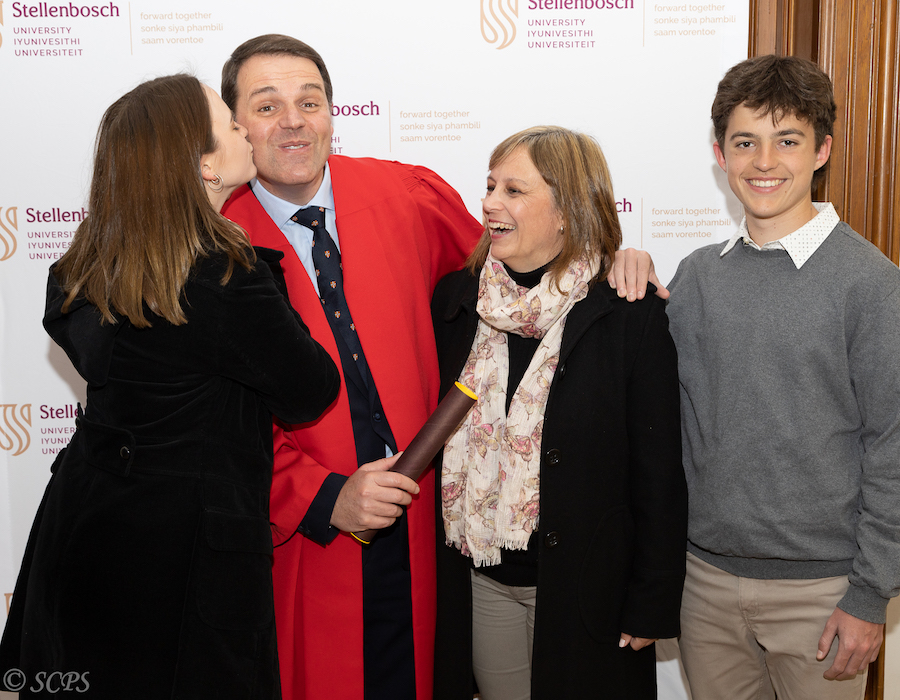 On the 16th of August 2022 I was exceptionally grateful to deliver my Inaugural Lecture as a Full Professor at Stellenbosch University.
On the 16th of August 2022 I was exceptionally grateful to deliver my Inaugural Lecture as a Full Professor at Stellenbosch University.
The tradition of the Professorial Inaugural Lecture is that once one is promoted to Full Professor you have to make a 'profession'. It is generally assumed that some years or decades of research and scholarship will mean that you have something of meaning and value to say.
I took that very seriously. Wrestled for some months with what to 'profess'. Of course there was the pressure that the lecture's text had to be finalised in order to be prepared for publication! This was actually quite good - it meant that I had to read, listen, discern, and write! In the end I tried to discern what might be appropriate, fitting, and just for me to profess as a white, male, professor of Public Theology and Ethics in Stellenbosch South Africa in 2022? As it happened, the date that the University set for the lecture coincided with the 10th Anniverary of the Marikana massacre (about which I had done research and written previously). The mine workers who were shot in that terrible event had built their campaign around decency - what they were advocating for was a 'decent wage' (not just a 'living wage'). They wanted to earn enough to be able to undo the evils of colonialism and apartheid for them and their families. They were asking to earn enough to be able to undo the dehumanization of migrant labour, of inadequate education, of a lack of health care, and of ongoing poverty. They expected, that in a decent society they should be able to earn a decent wage. Sadly, 47 persons died indecently during that week's protests.
So in the end, the title of my lecture was:
Living more decently in an indecent world? The virtues and vices of a public theologian.
You can download PDF copy of the published lecture here.
The event was attended by family, friends, my wonderful colleagues, and members of the Rectorate of Stellenbosch University. It was such a special evening! I am so grateful.
You can watch the lecture itself here (or see the embedded youtube video below which will start playing at the start of the lecture itself, skip back to the beginning to watch the whole evening with inputs from special colleagues and friends).
 Saturday, April 25, 2020 at 8:39AM
Saturday, April 25, 2020 at 8:39AM 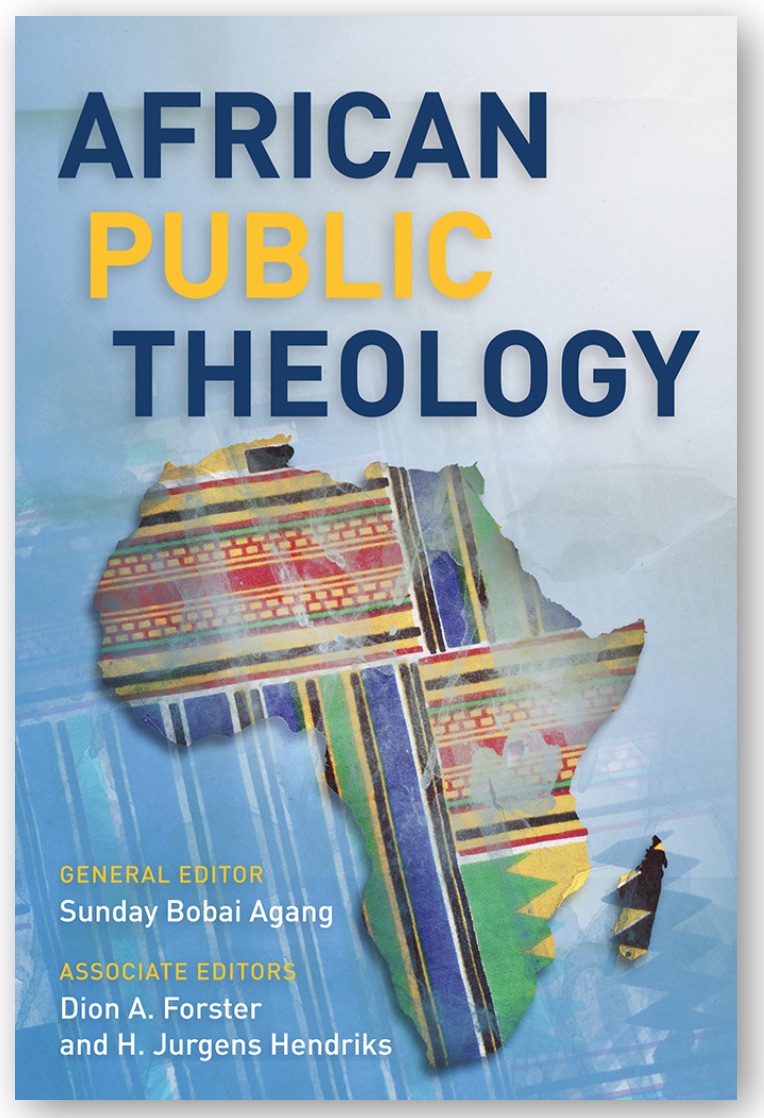 African Public Theology launch announcement April 2020
African Public Theology launch announcement April 2020
UPDATE! I am pleased to let you know that as of today the book is available for sale all around the world! It is amazing value for an incredible book - 430 pages, 30 chapters, and at less than US$15 (R350 in South Africa).
You can purchase your copy here:
South Africa - CLF
International - Amazon
From the publisher - Langham Publishing
Original post below:
Yesterday we received the wonderful news that our new book ‘African Public Theology’ was published by Langham Partnership: Hippo Books!
This is one of the most important projects that I have participated in to date. Professors Sunday Agang, Jurgens Hendriks, and I are the editors of the volume (448 pages). It is the first comprehensive ‘African Public Theology’ with contributions from Academics and Expert Practitioners throughout Africa (Nigeria, Ethiopia, Zimbabwe, South Africa, Burundi, Ghana, Kenya, Tanzania, Malawi, to name a few).
I am so grateful to each of the authors, and to our fellow editors, and particularly to the wonderful team at Langham (in particular Isobel Stevenson). Here is a list of chapters and contributors, and the details for the book that will soon be for sale on Amazon, Google Books, Apple Books, and of course the publisher website (in both print and Digital formats). The cost of the book is extremely affordable for a 450 page book! So, if you buy just one book for yourself, or as a gift for a loved one, this may be a great choice!
African Public Theology
Editors: Sunday Bobai Agang, Dion A. Forster, and H. Jurgens Hendriks
ISBN: 9781783687664 Imprint: HippoBooks Format: Paperback Page Count: 448pp
Available: April 2020
Table of Contents
Foreword – Samuel Waje Kunhiyop (Nigeria) Preface – Sunday Bobai Agang (Nigeria)
PART 1: Introduction to Public Theology
PART 2: Public Theology and Public Life
PART 3: Public Theology and the Church
Endorsements
Though there are thirty authors from different backgrounds and disciplines, there is unity of purpose, clarity and continuity in this highly readable book. African Public Theology is one of the most important theological books to come out of Africa in 2020 and should be a pacesetter for future African theologies.
SAMUEL WAJE KUNHIYOP, PhD
Former General Secretary, Evangelical Church Winning All (ECWA) Author, African Christian Ethics and African Christian Theology
The writers seek to discover how the church can truly be light and salt, heralding transformation and change. This is essential reading for all theological colleges and concerned Christians.
THE MOST REV BENJAMIN A. KWASHI, DMin
Bishop of Jos, Nigeria General Secretary, Global Anglican Future Conference (GAFCON)
You can download some more information about this book here.
 Saturday, February 8, 2020 at 9:31PM
Saturday, February 8, 2020 at 9:31PM 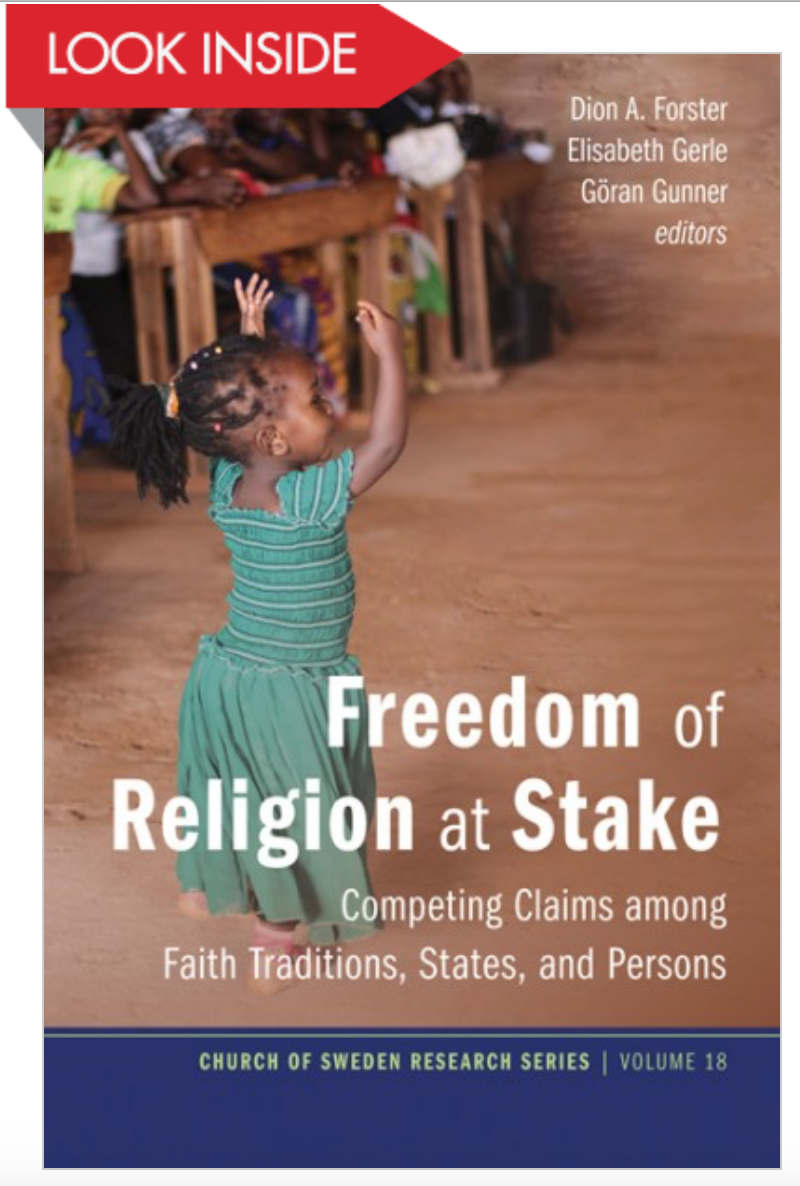 This has been a wonderful week! I learned today that our new book 'Freedom of Religion at Stake: Competing Claims among Faith Traditions, States, and Persons' (Wipf and Stock Publishers, 2019) was released! Elisabeth Gerle, Göran Gunner and myself were the editors of this wonderful volume.
This has been a wonderful week! I learned today that our new book 'Freedom of Religion at Stake: Competing Claims among Faith Traditions, States, and Persons' (Wipf and Stock Publishers, 2019) was released! Elisabeth Gerle, Göran Gunner and myself were the editors of this wonderful volume.
Among the other authors were Hennie Kotzé, Newton Kahumbi Maina, Damaris Parsitau, Keith Matthee (SC), Ma Plaatjies van Huffel, Nokuzola Mndende, Selina Palm, Fatima Seedat, Charlene Van Der Walt, Peter Petkoff, Elizabeta Kitanovic, and of course Elisabeth Gerle, Göran Gunnerand Dion Forster.
Here is the official link to the book on the Wipf & Stock website: https://wipfandstock.com/freedom-of-religion-at-stake.html
Here are the endorsements for the book:
“If secularism fears religion for its threats to freedom, religions have reason to fear the inverse threat of secular stereotypes. Yet religion represents as irreducible a multiplicity as do the modes of modern secularization. With its brilliant plurality of African and European voices, this volume probes key entanglements of power, ethics, and faith. It constructively illumines the tensions not only between conservative and progressive theologies but between reactionary nationalisms and liberal pluralisms.”
—Catherine Keller, Drew University, author of Political Theology of the Earth: Our Planetary Emergency and the Struggle for a New Public
“This volume brings readers, students, and scholars to a more nuanced knowledge of what religious freedom might mean, specifically highlighting how the very concept of religious freedom can oppress and marginalize minority positions within main religions. The volume gives a rare combination of concrete and critical case studies from both the South and North, as well as new and challenging theoretical reflections.”
—Trygve Wyller, University of Oslo
“This book will help the reader grapple with the issue of what is really meant by justice for all and for creation. People of faith, academics, and politicians are challenged . . . to widen the conversation to include freedom from religious abuse within faith traditions and from impinging the human rights of some individuals and the earth.”
—Isabel Apawo Phiri, World Council of Churches
 Friday, June 14, 2019 at 11:37AM
Friday, June 14, 2019 at 11:37AM 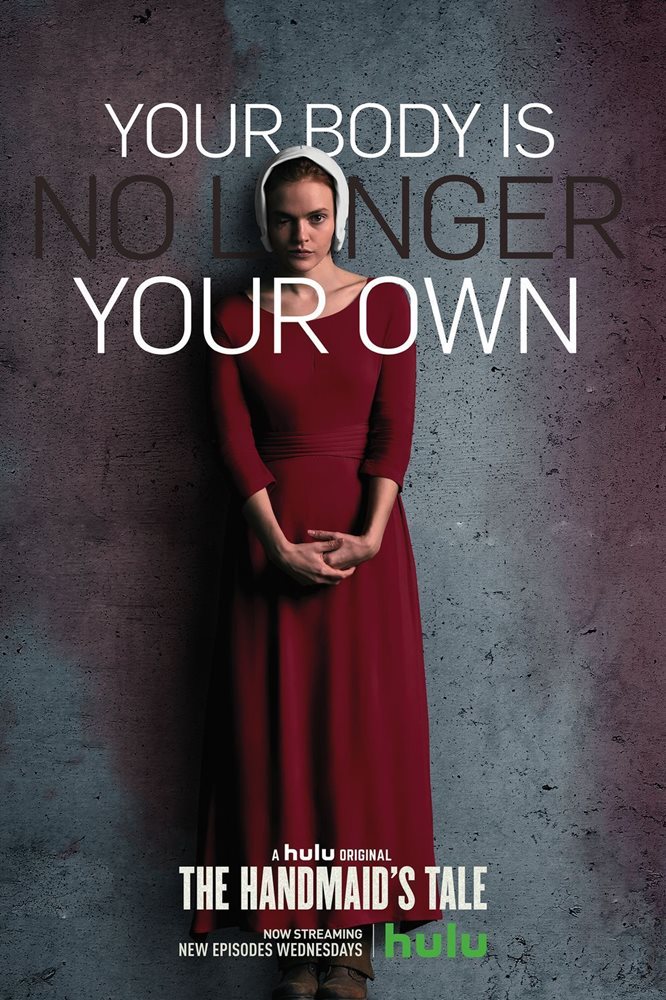
 Sunday, March 10, 2019 at 8:16PM
Sunday, March 10, 2019 at 8:16PM An article that my colleague, Pastor Simbarashe Pondani and I wrote for The Conversation Africa has been published.
It is entitled: ‘Why South Africans are prone to falling for charlatans in the church’.
You can read it here: http://theconversation.com/why-south-africans-are-prone-to-…
Pastor Simba recently graduated from the Master of Theology, Gender and Health Program at Stellenbosch University. His thesis focused on these opportunistic ‘Pastors of Doom’. When the editors approached me to write an article on this topic I asked if I could write it with Simba. I am so pleased to have been able to draw on his expertise and research in writing the article.
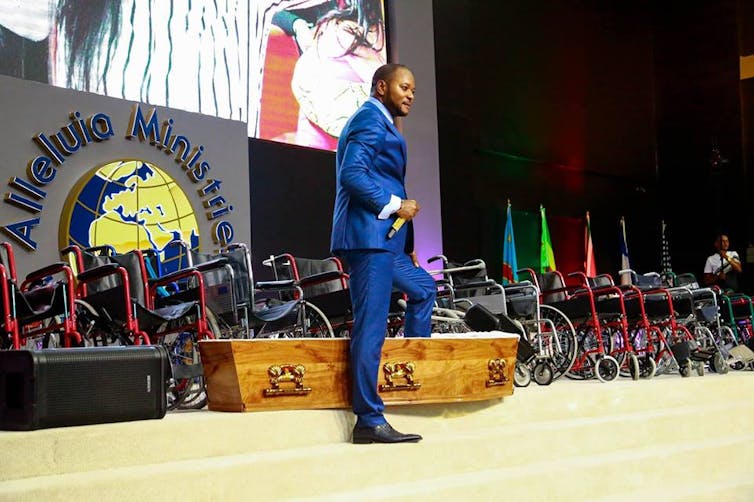
South Africans – like millions of people across the world – are seriously susceptible to religious abuse.
The local media has once again been abuzz with a litany of shocking stories about manipulation, abuse and fraud by pastors. The latest one, a fake “resurrection” made headlines around the world. A video of Pastor Alph Lukau “raising” a man from the dead went viral and even sparked the #ResurrectionChallenge.
Why do South Africans fall for these religious snakeskin oil salesmen (and women)?
One possible reason is that faith continues to play a very significant role in South Africa. In the last household survey over 84% of South Africans indicated that they are Christians. And a 2010 Pew Report found that 74% of South Africans said that religion played an important role in their daily decisions, values and shaping of their morals.
In addition, churches and religious leaders enjoy higher levels of public trust in South African society than either the government or private sector. This is unlike many other modern democracies in the 21st century.
Some suggest that this susceptibility to religious belief is due to the moral and political failures of the state and politicians. Religious leaders and institutions gain trust in situations where the population faces high levels of economic and social vulnerability, as is the daily reality for many South Africans. Religious groups are often the only sources of basic care and hope in many communities.
We believe that South Africans allow charlatan pastors to win their trust, take their money and get them to engage in frightening, and even comical, quasi-religious acts because of a combination of two factors. Many South Africans have high levels of trust in religious leaders. At the same time there’s a great deal of economic need. In situations like this people look to “supernatural” means to solve basic problems. Research on these phenomena in countries such as Brazil and Nigeria shows similar tendencies.
People are drawn to what are known as prosperity gospel pastors because they are offered the opportunity of getting out of poverty and becoming rich by means of God’s blessings. South Africans who are losing hope of gaining adequate employment, or dealing with rising debt, see the lavish lifestyles of prosperity gospel pastors is appealing.
The message is that: obedience and sacrificial giving (to the pastor and their church) is the road to wealth.
Second, in a situation in which there is inadequate health care, it isn’t surprising that people turn to “miraculous” healers to find relief from suffering. This phenomenon is not unique to South Africa - it happens in other countries around the world where religion is important and social systems are weak.
How are these unethical leaders and their sectarian communities spotted?
One of the most telling characteristics is an overt and gaudy display of personal wealth. The intention is to extravagantly display the super-abundance of supposed “divine blessing”.
Sadly, the wealth on display is derived by manipulation, even criminality, or excessive and unsustainable debt.
Next, is the tendency towards the supernatural and the spectacular – miracle healings, raising people from the dead, prophesying and sharing visions.
These “miracles” are frequently staged, using actors, psychological tools or technologies. They serve to attract members, and also to establish a hierarchical religious power structure with the pastor at the top.
The veneration and deification of the pastor is another common characteristic. They are presented as a “spiritual elite”, having direct access to God, a special measure of God’s blessing, and particularly powerful spiritual gifts. As God’s “chosen one” these aspects serve both to give the pastors power over their members, but also to shroud them in mystery.
In contemporary religious sociology this is referred to as “religious exceptionalism”. The laws of nature, culture, the religious tradition, the state and morality do not apply to them since they are an “exception”, supposedly by God’s divine choice.
In some instances, these leaders and their communities display cult like tendencies, seeking to isolate their members from regular life and their friends and families, who are portrayed as sinful and evil. It is under such conditions of deep trust, sincere faith, great need, facing spiritual manipulation and isolation, that many of the abuses take place.
What should be done to curtail such abuses?
The South African government has sought to regulate religious leaders and communities through the Commission for the Promotion and Protection of the Rights, Cultural, Religious and Linguistic Communities. The commission is attempting to set up standards for conduct, registration and qualification of religious groupings and leaders.
There is some concern that the state-appointed commission will use laws and policies to infringe on the legitimate rights to freedom of religion, and possibly even silence critique of the state.
Also, many of the abuses are not primarily religious or theological in nature. They are covered by civil law that should simply be enacted to protect citizens.
South Africa remains a deeply religious nation. The state and religious leaders and their communities bear a shared responsibility to identify and expose corrupt religious leaders, as well as safeguard citizens against abuse, while maintaining their rights to religious freedom.
Simbarashe Pondani has contributed to this article.![]()
Dion Forster, Head of Department, Systematic Theology and Ecclesiology, Professor in Ethics and Public Theology, Director of the Beyers Naudé Centre for Public Theology, Stellenbosch University
This article is republished from The Conversation under a Creative Commons license. Read the original article.
 Monday, October 1, 2018 at 9:35AM
Monday, October 1, 2018 at 9:35AM Stellenbosch University is inviting applicants for a PhD Bursary and a Post Doctoral Fellowship in Scriptures, Religions, and Hermeneutics for 2019.
Area of PhD research project:
Any topic related to the hermeneutical dynamics operative in the interpretation of the scriptures of Judaism, Christianity, and Islam. The study must be situated in either Old Testament, New Testament, or Missiology/Religion Studies in the Faculty of Theology, Stellenbosch University.
Background and Context:
A project is presently based at Stellenbosch University to investigate the viability and theoretical basis for establishing a Centre for the Interpretation of Authoritative Scriptures (in ancient and contemporary contexts) [shortly, CIAS] at the said university. The project is jointly funded for the period 2018-2020 by the National Research Foundation (NRF) as well as the office of the Vice-Rector (Research & Innovation) of Stellenbosch University. During 2018 some consultations were held to develop the theoretical basis for the proposed centre, and to establish contact with local South African and international scholars having an interest in the hermeneutics of the three scriptural traditions. During 2019 some pilot research projects (through a Master’s study, this PhD project, and a postdoctoral project) will be started, while the project team will continue developing the research and physical infrastructure for the proposed centre. The focus in the centre will eventually be on the academic analysis of the hermeneutical processes that brought about the scriptures of Judaism, Christianity and Islam, that facilitated their transmission processes and (in some cases) canonization, that regulated the history of interpretation in each tradition, and that determine contemporary interpretations of these scriptures in the South African society. This research wants to contribute to developing a hermeneutical basis for dialogue between the three traditions on the intepretation of their scriptures. As a further spin-off, the project could also contribute to social cohesion in South Africa, in contrast to social conflict.
Please don’t contact me for details. I am just sharing the information. Please download and follow the instructions in the two documents linked below.
PhD Bursary: https://www.dropbox.com/s/j7jc18a7vv8tq1z/PhD%20Advert%202019%20Final.pdf?dl=0
Post Doctoral Fellowship: https://www.dropbox.com/s/i17d64l15b7j2b9/Postdoc%20Advert%202019%20Final.pdf?dl=0
 Tuesday, September 25, 2018 at 12:28PM
Tuesday, September 25, 2018 at 12:28PM "You do not need to know precisely what is happening, or exactly where it is all going. What you need is to recognize the possibilities and challenges offered by the present moment, and to embrace them with courage, faith and hope." - Thomas Merton
"Do not think that you can show your love for Christ by hating those who seem to be His enemies on earth. Suppose they really do hate Him: nevertheless He loves them, and you cannot be united with Him unless you love them too…. Do not be too quick to assume your enemy is a savage just because he is your enemy. Perhaps he is your enemy because he thinks you are a savage. Or perhaps he is afraid of you because he feels that you are afraid of him. And perhaps if he believed you were capable of loving him he would no longer be your enemy. Do not be too quick to assume that your enemy is an enemy of God just because he is your enemy. Perhaps he is your enemy precisely because he can find nothing in you that gives glory to God. Perhaps he fears you because he can find nothing in you of God’s love and God’s kindness and God’s patience and mercy and understanding of the weaknesses of men." - Thomas Merton, New Seeds of Contemplation
"Our real journey in life is interior: it is a matter of growth, deepening, and of an ever greater surrender to the creative action of love and grace in our hearts." - Thomas Merton
A blessed heritage day to all of my South African sisters and brothers. May we engage the very worst of our past with honesty, and the very best of our future with love.
 Friday, August 10, 2018 at 10:09AM
Friday, August 10, 2018 at 10:09AM 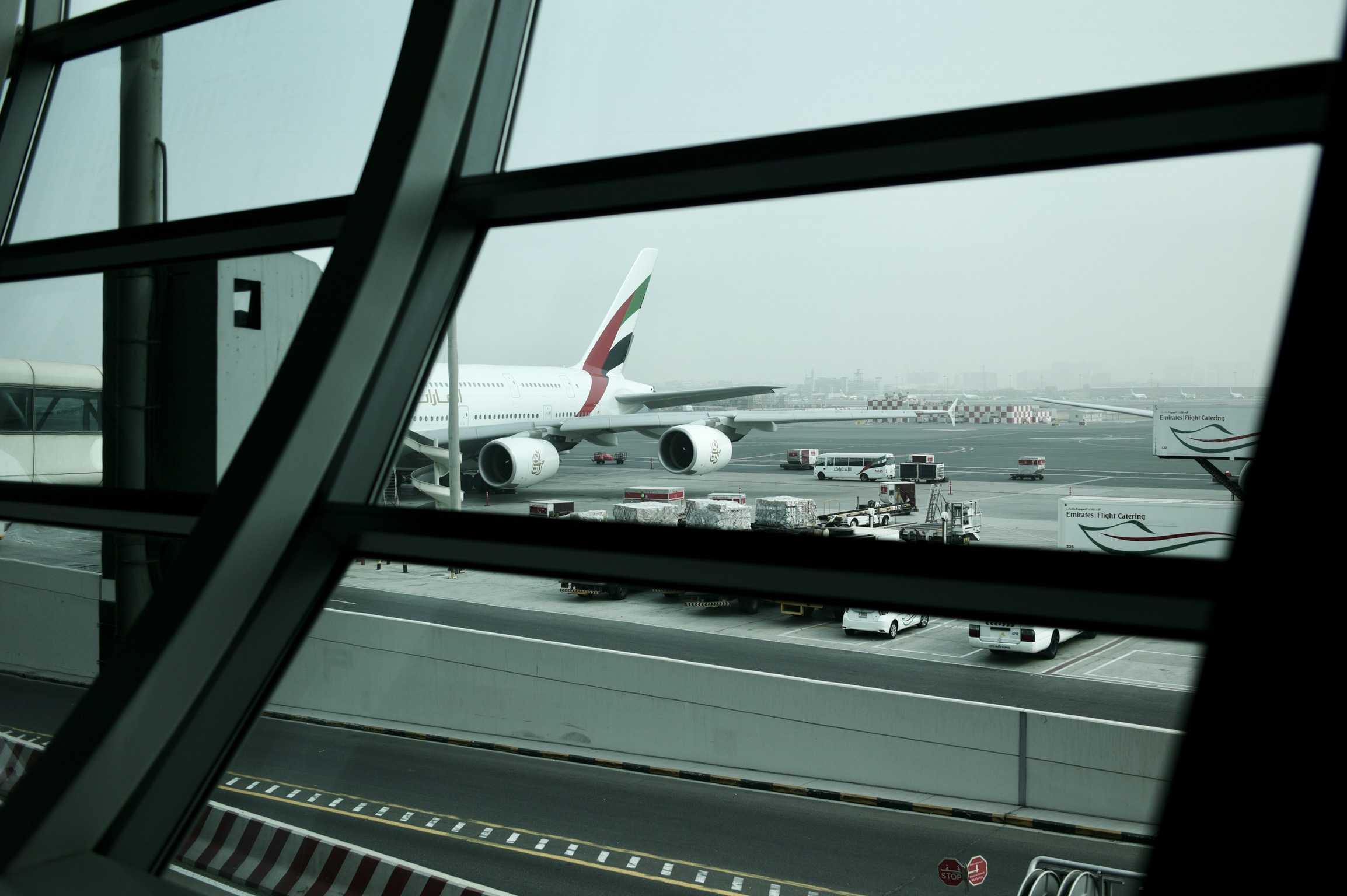
 Monday, April 2, 2018 at 6:55PM
Monday, April 2, 2018 at 6:55PM 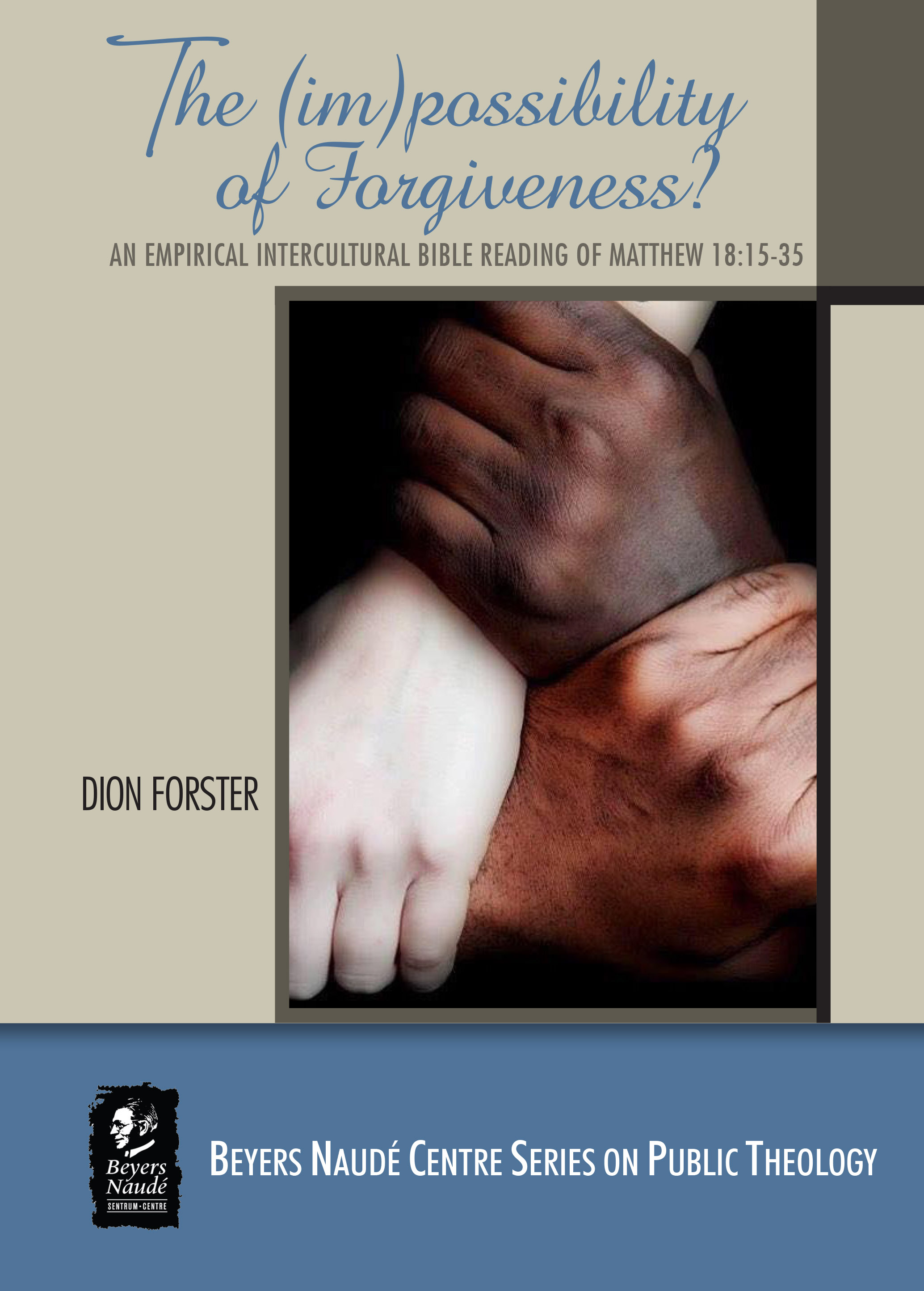 In my new book 'The (im)possibility of forgiveness?' I present the complexity of notions of forgiveness in South Africa. South Africa's apartheid history (and current reality) is extremely traumatic. It continues to dehumanize the majority of the citizens of South Africa.
In my new book 'The (im)possibility of forgiveness?' I present the complexity of notions of forgiveness in South Africa. South Africa's apartheid history (and current reality) is extremely traumatic. It continues to dehumanize the majority of the citizens of South Africa.
I tend not to speak of a 'post-apartheid' South Africa since I feel that even though we live in a democratic dispensation where apartheid laws have been dealt with, the daily reality of most of our citizens is that apartheid is more entrenched than ever before. Except, now instead of it being primarily a political system in which an unjust state is the supposed enemy, it is a subtle economic system that is deeply entrenched in the social imagination. Some find it extremely difficult to imagine a South Africa in which no person has too much while another person does not even have enough to survive. The 'enemy' we now face is so seductive. It runs across racial and class barriers, seducing us into greater and greater sin. We want to own more possessions, gather more wealth, live in greater opulence, and experience so much more freedom and pleasure. And so, the rich grow richer, while the poor grow poorer.
It is primarily Black South Africans continue to be systematically oppressed through this unjust (economic) system, with unequal ownership of land, and the dominance of whiteness in social spaces and the media. If you want to hear more about my reasons for advocating against the use of 'post-apartheid' as a reasonable statement, or category of thought, then please watch this short video. Simply stated, if I were to claim that we live in a post-apartheid society it would not be true in relation to the daily experience of most of South Africa's citizens. Not only would it be a lie, but it would be a callous lie since it would deny the reality of hardship, suffering and pain that people experience every day.
Hence, while South Africa is closer to democracy (where citizens have the right have to rights), the reality is that politically and economically those rights remain out of reach for most. We are in 'most apartheid' South Africa. In this context, forgiveness becomes a deeply political concept.
Hence I ask, for what reason would White South Africans wish to be forgiven? Is it so that we can be set free from the guilt of our past, and the ongoing guilt of our present way of living? Nathan Trantaal speaks of the 'gif [poison] in vergifnis [forgiveness]'. Forgiveness can be a weapon that creates wounds. A White South African can seek it from a place of power and dominance - asking to be set free without having to face the consequences of our sin (economic sin, racial sin, social sin).
So, if we were to think about a polis in which forgiveness was not only a belief, but a reality, what would it look like? What would it take to get there? I am inspired by Miroslav Volf's idea in 'The end of memory'.
I am often asked when I speak about forgiveness, whether when we forgive, are we expected to forget? I think that forgetting altogether can be dangerous. However, what if we were to live for a world in which a memory of justice, reconciliation, mutual respect, the celebration of diversity, and true wholeness was what we remembered instead of our brokenness, enmity, greed, and fear? How would we need to start living today as a society, a polis, to make such a memory real in the future? This is what Stanley Hauerwas would call a political eschatology.
In this reality forgiveness cannot only be only as a spiritual or a theological reality. It must be concrete, it must be real. The content of true forgiveness should be experienced in a society of justice and grace.
However, it is also inadequate to think that once a political or economic 'transaction' has been enacted that forgiveness would have been achieved - the transactional view of forgiveness is as inadequate as the purely spiritual view.
Please don't missunderstand me - I firmly believe that we need a redistribution of land in South Africa, we need a transformation of our economy, and we must work for a reality in which the majority of our citizens benefit from the bounty and beauty of our land. However, when these necessary things are achieved, we will not yet be reconciled - forgiveness will not yet be achieved. These social, political and economic realities are not the 'end' of forgiveness (its fulfillment or achievement), no, they are the beginnings of forgiveness. Beyond the transaction we need something more, something gracious, something spiritual, something that is shaped by justice but achieved in grace.
I hope that you can see why this notion of forgiveness is such a complex concern? I long for us to be honest about the complexity of the politics of forgiveness in South Africa. It is only when we are willing to count the cost, and even more, to live with grace, that we can move beyond poisonous forgiveness to life giving, life affirming, and real forgiveness. A forgiveness that heals instead of harms.
Here is a copy of the Stellenbosch University Forum lecture that I gave on this topic in September 2017. I was honoured, and very grateful, to be invited by the University to deliver this lecture. The lecture was entitled 'The (im)possibility of forgiveness? Considering the complexities of religion, race and politics in South Africa'. The lecture has been reworked and will soon be published in a book on Religion, Violence and Reconciliation in Africa (published by SUN Media).
Here is a direct link to the youtube link below.
 Friday, December 22, 2017 at 8:22AM
Friday, December 22, 2017 at 8:22AM This has been a year to remember! Forgive me, but this is a bit of a rambling post! Please feel free to skip it if you get bored. I have used this post as an opportunity to re-collect many of the important people, events, places and happenings in 2017.
At the outset I want to say how mindful I am that the blessing of this year comes from the many wonderful people and communities that I am priviliged to be associated with. I have received much more than I deserve, and in many instances, been recognised for work that belongs to a group of persons, not just to me. In addition to this, I am also mindful that any achievement is only worthwhile if it can lead to service. My hope is that the work of this year bears fruit for my students, for the Church I serve, for the people of the world that God so loves, and in some small way may help us to honour and protect the dignity and sanctity of humans and creation. This is about Christ, and community, and undeserved grace.
As I was reflecting on this year I was struck by this beautiful quote from Dietrich Bonhoeffer's, 'God is in the manger':
'While we endeavor to grow out of our humanity, to leave our human nature behind us, God becomes human, and we must recognize that God wants us also to become human—really human. God raised his love for human beings above every reproach of falsehood and doubt and uncertainty by himself entering into the life of human beings as a human being, by bodily taking upon himself and bearing the nature, essence, guilt, and suffering of human beings. Out of love for human beings, God becomes a human being. This is about the birth of a child, not of the astonishing work of a strong man, not of the bold discovery of a wise man, not of the pious work of a saint. It really is beyond all our understanding: the birth of a child shall bring about the great change, shall bring to all mankind salvation and deliverance.' – Dietrich Bonhoeffer, God Is In the Manger
I am truly grateful for this year!
It included, my daughter finishing high school and getting accepted to study at Stellenbosch University! Courtney also got her drivers license this year. My wife, Megan, completed a brilliant Masters degree, and my son Liam, is going to Grade 5!
I continued so serve as the Chair of the Department of Systematic Theology and Ecclesiology and the Director of the Beyers Naudé Centre for Public Theology in the Faculty of Theology at Stellenbosch University. I am so grateful for the opportunity to do the work that I do. I truly feel like I am fulfilling my calling and spending my time and energy among magnificent people, doing interesting and worthwhile things - I am in my 'sweet spot'!
Here are a few of the highlights:
Among my highlights in teaching and learning were:
Travel and conferences. I travelled a fair amount in 2017 (16 trips, of which 8 were overseas):
As I write this I am on leave. There is a great deal to look forward to in 2018! I am due for research leave in 2018 and have been invited to undertake some part of that research leave in Sweden at the University of Gothenburg's department of Religious Studies and Theology. I will also be spending some time in Oxford for the Oxford Institute for Methodist Theological Studies. And if my Humboldt Stiftung (Fellowship) is successful (please say a prayer!) I shall be spending some months in Berlin! It is my hope that Megie, Courtney and Liam will be able to join me for parts of those trips.
So, as the year ends, I want to give glory to God, express my love for my family, and give thanks to my colleagues and friends. I am truly grateful to share in this journey with each of you. May we continue to offer our selves, our resources, our passion, our training, our intellect, our creativity, and indeed our very lives, for the development of the common good, for justice, for peace, and for fullness of life.
I share my last little video for the year (recorded on the Campus of Princeton University) on the politics of forgiveness with you. May you be blessed at Christmas, revived, renewed, and replenished for what lies ahead.
 Thursday, October 12, 2017 at 2:46PM
Thursday, October 12, 2017 at 2:46PM 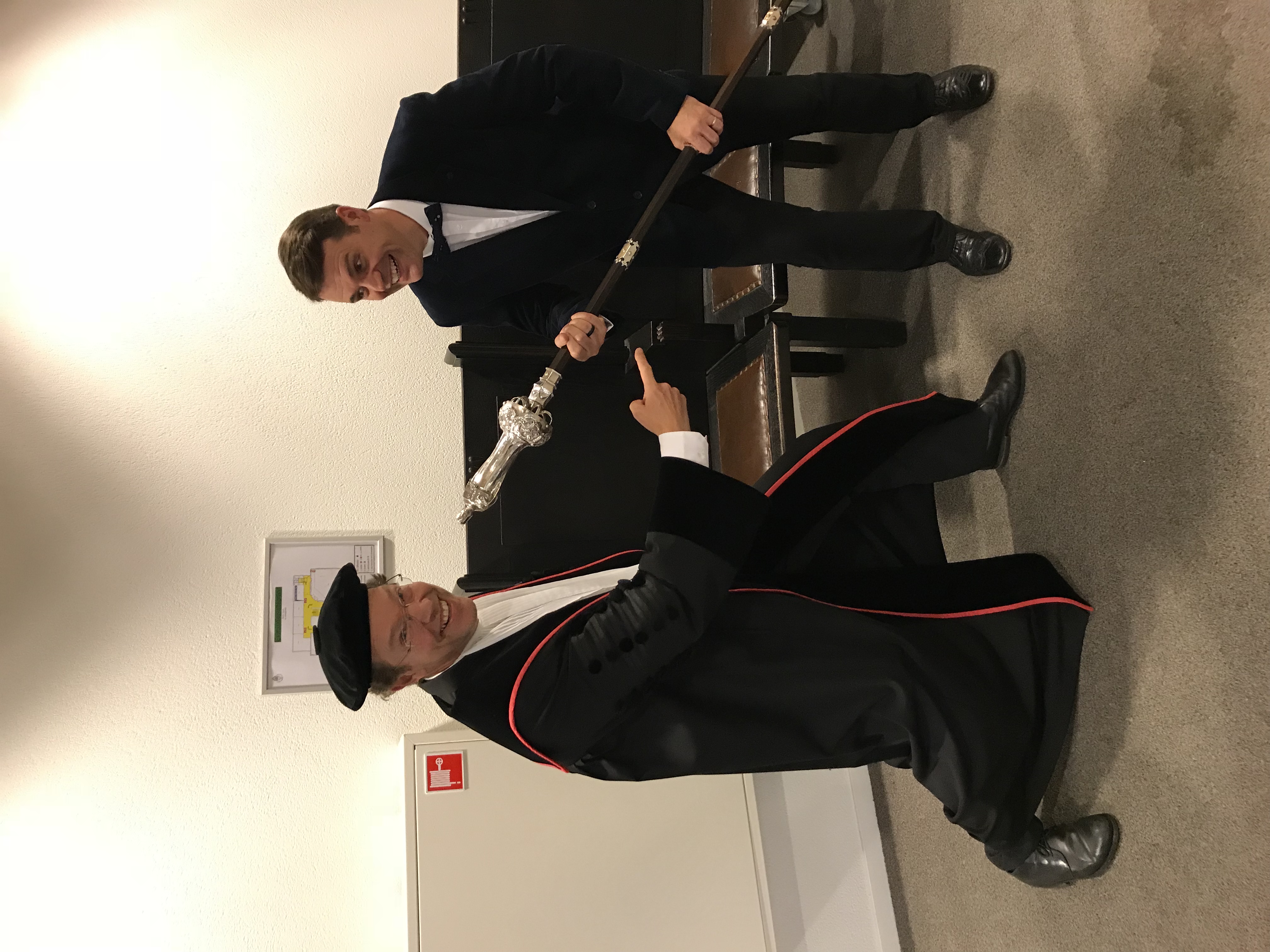 Yesterday was a truly amazing day! At exactly 16.30 (11 October 2017) I defended my PHD (which you can read about here) at Radboud University, Nijmegen. It was a wonderful joy to share it with my wife Megan. At Dutch Universities the defence and graduation takes place at the same time. Your dissertation (once completed) gets examined, and then you have to publish it as a book (which I did - see the previous link for details). Then you defend it in public, and the degree gets awarded at the same event! It was exciting, but also rather scary at the same time! I am so grateful that it is done and the degree of ‘Doctor’ has been awarded (which means that I now hold two PHD’s, one in Systematic Theology and one in New Testament studies).
Yesterday was a truly amazing day! At exactly 16.30 (11 October 2017) I defended my PHD (which you can read about here) at Radboud University, Nijmegen. It was a wonderful joy to share it with my wife Megan. At Dutch Universities the defence and graduation takes place at the same time. Your dissertation (once completed) gets examined, and then you have to publish it as a book (which I did - see the previous link for details). Then you defend it in public, and the degree gets awarded at the same event! It was exciting, but also rather scary at the same time! I am so grateful that it is done and the degree of ‘Doctor’ has been awarded (which means that I now hold two PHD’s, one in Systematic Theology and one in New Testament studies).
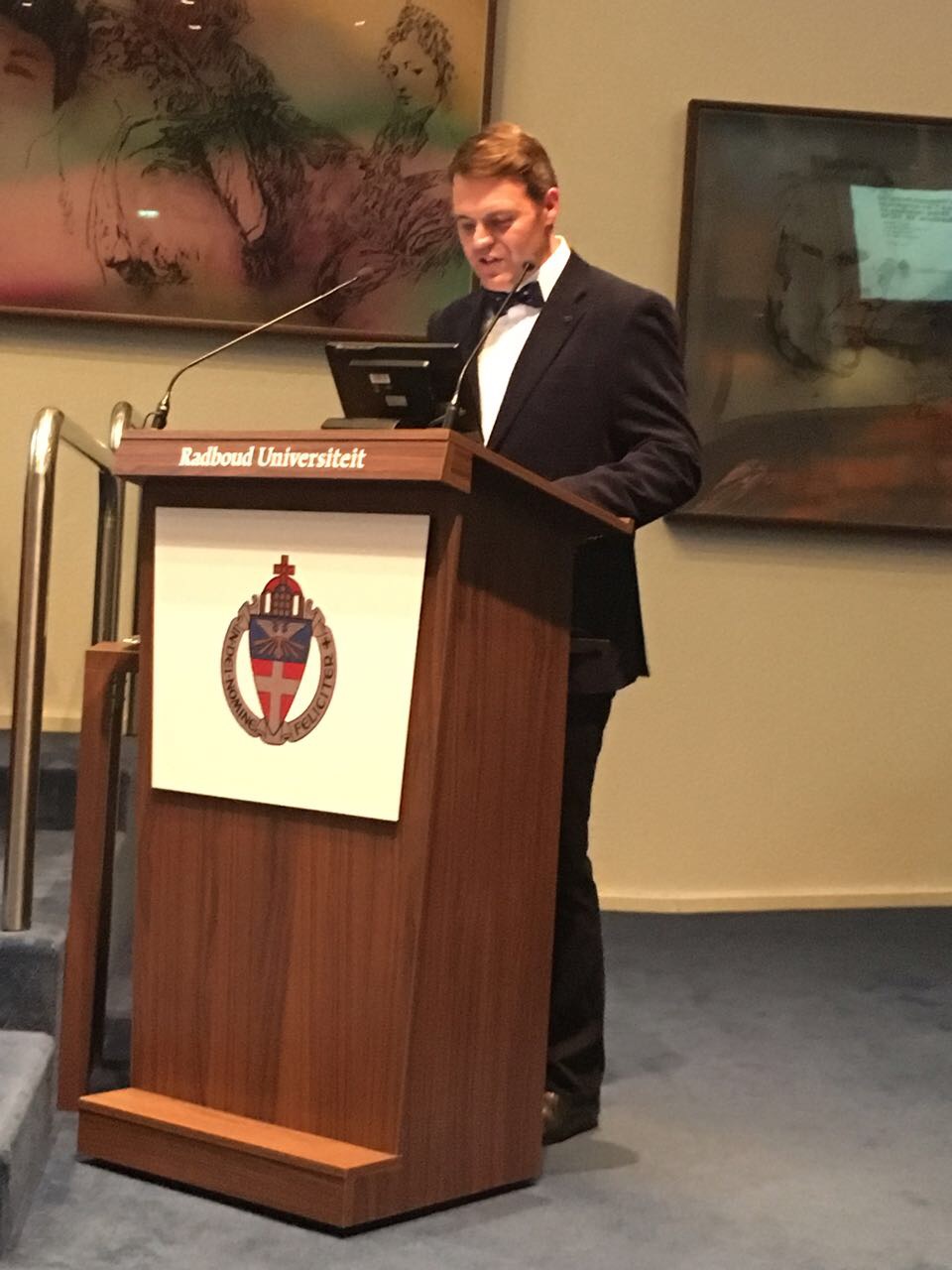 You can watch a little video about the build up to the defence below. And here are a few pictures from the event (with the ‘pedel’ / ‘beadle’) who was a great sport! My thanks to Radboud University, my supervisors, Prof Jan van der Watt and Prof Chris Hermans, to the communities that participated in the research (they matter most in this project!) and to my wonderful family for their love and support.
You can watch a little video about the build up to the defence below. And here are a few pictures from the event (with the ‘pedel’ / ‘beadle’) who was a great sport! My thanks to Radboud University, my supervisors, Prof Jan van der Watt and Prof Chris Hermans, to the communities that participated in the research (they matter most in this project!) and to my wonderful family for their love and support.
